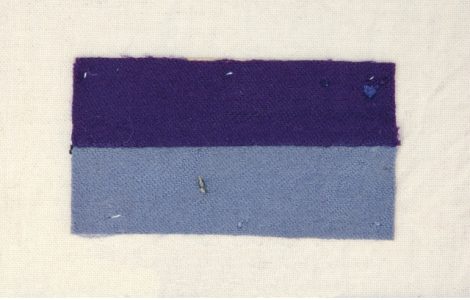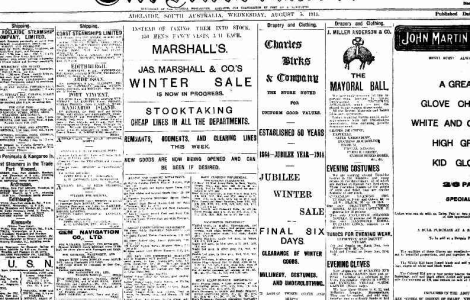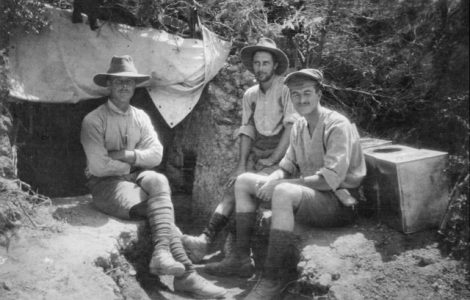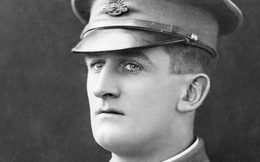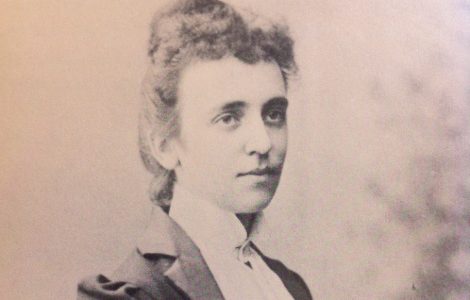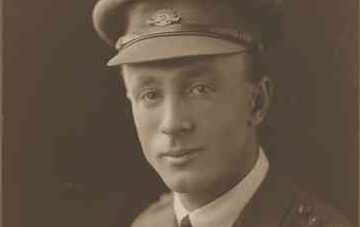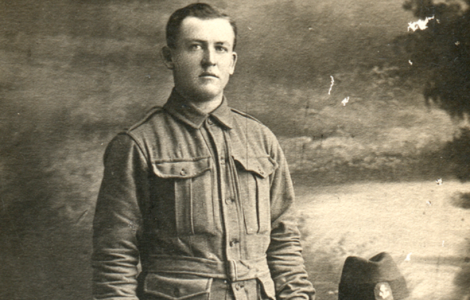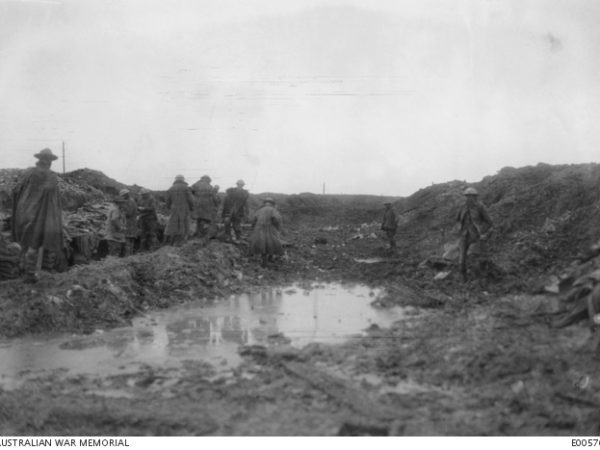
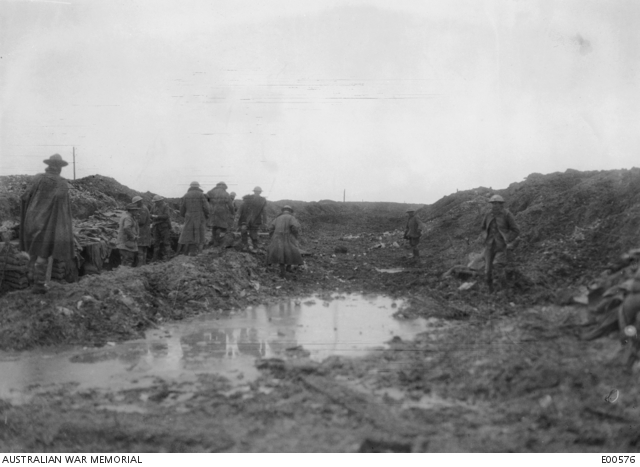
Unidentified soldiers, probably of the 12th Brigade, moving along a support line known as 'Cheese Road'. This sunken lane forming the support line in front of Flers. On 12 November 1916, shortly before the image was taken, Brigadier General D J Glasfurd, Commanding the 12th Infantry Brigade, was mortally wounded here by a German shell while inspecting the line in readiness for the brigade.
Glossary Terms
Topics
People
Terrell, Frederick Leopold, Cooper, Ethel, Avery, Louis Willyama, Smith, Ross, Churchill-Smith, James, Hughes, Billy
Organisations
November, 1916
Whilst Australians continued to play a part in the bloody battle on the Somme, there was another battle – albeit bloodless – taking place much closer to home. The failure of Prime Minister Billy Hughes to win over the Australian people in the conscription referendum tore the Labor Party in two.
When the Federal Labor Caucus met in mid-November, a vote of no confidence in Hughes as leader was moved, sparking bitter debate. However, before the vote, Hughes left the room inviting ‘those who think with me to follow me’. 23 colleagues filed out with him. This group formed a new party – the National Labor Party, and a new government was formed. The Labor Party was left in tatters, at both state and federal level.
FROM THE SOLDIERS
In Europe, the battle on the Somme ground on as winter set in. The conditions for the soldiers were truly woeful. Their diaries record some of their discomfort and distress: the 10th Battalion official diary records that soldiers were at times ‘thigh high in mud and water’, and that men who spent 96 hours in the front lines, because it was impossible to evacuate them sooner, had to be treated for exposure. The news from our other soldier correspondents is much the same – Lou Avery was cleared to join his company after an incident in October when a prisoner escaped on his watch. His diary records much about the cold, wet conditions. He also notes that they were all required to treat their feet with whale oil to help prevent ‘trench foot’, a painful condition caused by constantly wet feet. He also mentioned the famous Madonna of Albert, and her precarious position at the top of the Basilica. Despite the horrendous conditions, Avery seems pleased to be rejoining his company after such a long time, and has retained something of his sense of humour, noting that he’d ‘discovered that rum and chocolates don’t mix’.
Leo Terrell and James Churchill-Smith were also on the Somme in November. In such bitterly cold conditions and with so little protection (blankets were not plentiful and fires in the forward trenches were banned), we can imagine the delight James would have felt in opening the gift of a thermos flask from home. He also notes in his diary that he sent Christmas cards home early in the month. It must have been hard to say something upbeat and cheerful for Christmas, when the conditions were so miserable.
James also mentioned the war in the air and the fact that he witnessed one of the Allied planes being shot down nearby to his position. This aspect of the war was becoming more important and more pilots were being recruited and trained. Amongst them was Ross Smith, who was still in the Middle East undertaking more training.
IN GERMANY
Ethel Cooper’s adventures with meat continued in November, as she tells her sister Emmie about her latest culinary creation – whale salad, with a strongly-flavoured mustard dressing to disguise the ‘train oil’ taste of the meat. She also expresses sadness at the plight of English women married to Germans and living in Germany, whose sons are conscripted into the German army: ‘they are in a miserable position’.
AT HOME
Meanwhile in South Australia, much attention was focussed on the fallout from the conscription referendum, but there were also signs that life continued – the Melbourne Cup was run (although a week late because of rain) with the profits being donated to patriotic funds. The race was won by Sasanof.
Striking coal workers also made news headlines, as the trade union movement was condemned for ‘unpatriotic’ strike action at this time. The Advertiser also reported that a Bill passed through the British parliament protecting the term ‘Anzac’ from trade or commercial use.
Recruitment numbers fell to just over 5000, the lowest to date. A film about the Battle of the Somme at the Wondergraph Theatre on Hindley Street proved popular. It was described as ‘intensely realistic, but there are no scenes in it to shock even the most sensitive mind’.
The intense anti-German feeling continued, with consideration given to a proposal to change all German place names in the state. There was also a ban on teaching German language and a proposal to close all German schools.
The Advertiser reported that returned soldiers with injuries preventing them from finding work were employed in a city toy factory, making wooden toys and household items for sale in time for Christmas, however Christmas 1916 was not shaping up to be particularly joyful.


